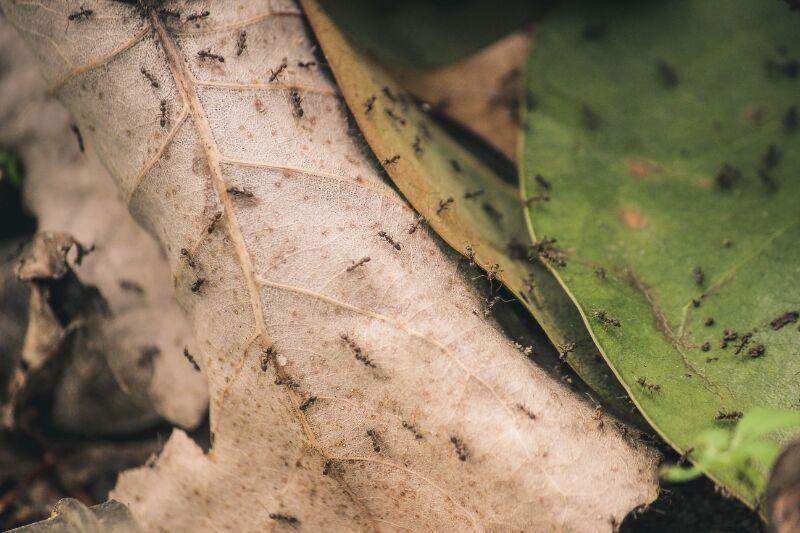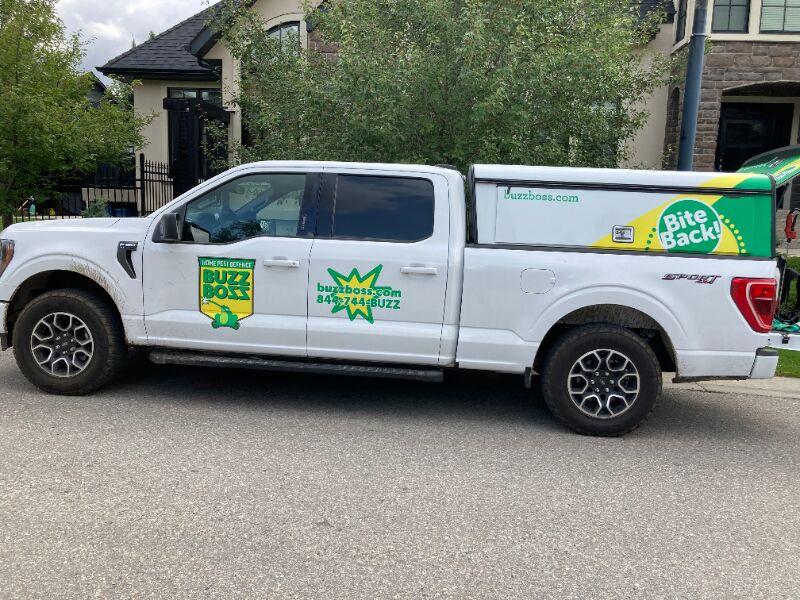Understanding and Using Ant Baits Effectively Expert Tips
Reading time: 8 minutesOf all the creepy crawlies, ants usually seem the least harmful compared to stinging wasps, spiders, and other eerie insects. But ants are more than just a problem at picnics.
Colonies of ants that nest in your home can contaminate your food and cause structural damage that’s difficult and expensive to repair.
Fortunately, ant baits are one of the best ways to eradicate an infestation and keep them from coming back.
Here’s what to know about its effectiveness and how to use it safely without causing excess harm to the local environment.
$71.39/month




Monthly billing is automatic – it’s easy and convenient.


Understanding Ant Baits
If you plan to use bait to eradicate or prevent ant infestations in and around your home, it's important to know how they work, how to use them safely, and which ones to choose.
Having some basic knowledge about active ingredients, attractants, strategic placement, and how to exploit ants' natural foraging behaviour is ideal to lower risk and increase treatment efficacy.
Different Types of Ant Baits
There are four types of ant bait that can be used to eliminate and deter ant infestations. Many of them contain the same active ingredient but in different concentrations or delivery methods, like:
- Liquid ant baits. Liquid ant baits usually use a sugary or protein-based liquid that contains active ingredients like fipronil, sodium borate, or hydramethylnon. The liquid is usually put into a small, spill-resistant container that can be set out on your counters, behind your refrigerator, on windowsills, and in other places where ants are likely to come across them.
- Gel ant baits. Gel baits are thicker than liquid baits and typically come in a syringe-like applicator or a "bait station" that has already been filled with gel. Ants are attracted to gels due to their gummy texture, making them a great option for large infestations.
- Powder ant baits. Powder ant baits aren't as easy to use as liquid or gels since the powder is loose and can get into areas where you don't intend to apply the bait. However, this might be a good solution for areas where liquid or gel baits aren't as practical, like outside, across large patches of ground.
- Solid ant bait. Solid baits come in the form of granules, blocks, or small discs that are embedded with the active ingredient. Granules are highly effective since ants can easily pick them up and carry them back to the nest the same way they transport food.
The Environmental and Health Impacts of Using Ant Baits
While using ant bait instead of insecticide sprays is better for the environment, it’s still important to be aware of the ecological impact of using baits and what you can do to mitigate the damage.
Unlike sprays and other widespread applications, baits typically don’t contaminate water runoff. However, they may pose a danger to pollinators and other beneficial insects who may also be attracted to the bait.
It’s recommended that the main ingredient in the bait you use is borax or boric acid. This material is toxic to ants but has the least harmful impact on non-target species. According to the Ontario Poison Centre, the risk of human poisoning from coming into contact with ant traps baited with borax is low, and the expected symptoms are oral discomfort and upset stomach.

Choosing the Right Kind of Ant Bait
With so many options available, you may find it overwhelming and difficult to find the best ant bait for your specific circumstances. Which kind of ant bait you should choose depends on a few key factors, including:
- The species of ant you’re dealing with. Different species respond uniquely to different baits, so you’ll need to know the species of infestation. For example, carpenter ants are generally less attracted to traditional sweet baits since they eat wood instead of food.
- The location of the ant infestation or nest area. Different ant baits are formulated for specific environments. Outdoor baits are not the same as indoor baits; you may even need to use both, depending on your circumstances.
- The environment where you live. If you live near a pond, lake, river, or natural habitat, be conscious of where you use your bait and the ingredients it contains. Choose baits that have low toxicity to non-target species and that break down quickly to minimize how long they stay in the environment.
- How attractive the bait will be for the ants. It’s important to make sure that the ants will be interested enough in the bait to take it. Different species of ants will be interested in different baits. For instance, little black ants like sweet baits, while Pharaoh ants prefer protein-based baits.
- If the ants have formed resistance to baits or pesticides. Avoid using the same kind of bait for extended periods since ants can easily develop resistance. Switch between baits or check with a local pest control professional to find out if there are any known resistance issues in your area.
- How easy the bait is to use. Choose baits that are easy to open and set out and that don’t require you to handle the bait material.
- How long does the bait stay active for? Depending on your infestation level, you may want to choose a bait that stays active for an extended period.
Frequently Asked Questions (FAQs) About Using Ant Bait Effectively
How does ant bait work?
After ants bring the bait back to the colony to share, any ants that consume the material will die within 48 hours. Ideally, the ants will bring the bait to the queen, and the entire colony will collapse once she dies.
How long does it take for ant bait to work?
Ant bait can eradicate small colonies in just a few days and larger colonies in one to two weeks. Extra-large colonies may take three or four weeks and multiple bait applications to fully treat the infestation.
Why aren’t the ants eating my bait?
Ants are driven to find different kinds of food sources during different seasons of the year. If a bait doesn’t have the type of food they need for the season, ants may not take the bait and may continue foraging until they find the correct nutrients they require.
If you’re using a sugar-based bait, try switching to a protein bait; if you’re using a protein bait, switch to a sugar-based one.
Is ant bait more effective than sprays or other ant poisons?
Sprays, powders, and other ant poisons are designed to kill ants by coming into contact with them. But because ants have hard exoskeletons, it’s difficult for the poison to be absorbed enough to be effective.
Usually, you’ll end up putting a ton of pesticides around your home and not really getting rid of any ants. Bait is more effective since ants eat it and are poisoned from the inside.
Where is the best place to put ant bait?
Pay attention to how the ants are coming in and out of your property and what trails they’re using. Ants use pheromones to find their way; putting your bait directly in their path can encourage them to take it with them on their journey back to the colony. These trails can be anywhere but are often around window sills, doors, and cracks in your walls or foundation.
Avoid putting ant bait or bait stations around pet food or water areas, around your sinks, or around drains to prevent the bait from contaminating your water.
Does squishing ants attract more ants?
Since ants are attracted to the pheromones they produce, squishing an ant will only release more of those pheromones and attract other ants to the area.
Are there natural ways to deter ants?
If you don’t want to use ant baits or want extra protection along with your bait stations, you can also use natural compounds like lavender, eucalyptus, thyme, basil, oregano, and mint to discourage ants from coming around your space.
While not as effective as bait, these strong scents work to deter ants from foraging for food in the area you put them. However, they dissipate quickly and require frequent reapplication.

When to Contact an Ant Control Professional
If you’re dealing with an ant infestation, it’s important to get professional help as soon as possible to address the issue. Ants are more than just a nuisance; they spread bacteria and other microorganisms over the surfaces they travel across. Some species will eat your home itself from the inside out. The key to effective ant control is swift and consistent action.
At Buzz Boss, we have the expertise and tools needed to identify ant infestations in and around your home and use environmentally safe compounds to treat them. Contact us today at 1-844-744-2899 to schedule an assessment from one of our expert pest control professionals.
You can also get a free estimate here!

